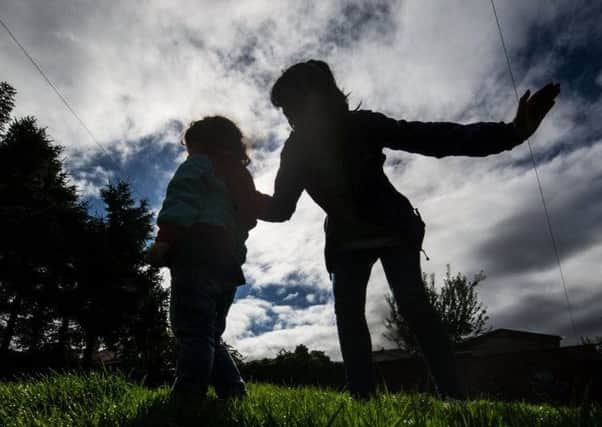Smacking ban proposal branded ‘tragic and depressing’ in Holyrood Committee


The Scottish Parliament’s Equalities committee was told that a new bill to ban smacking was “tragic and depressing” and underlined the “aloof, elitist nature of politics.”
Dr Stuart Waiton, a senior criminology lecturer at Abertay University, said that MSPs were not listening to public opinion, and that if a slap on a small child’s hand was a “form of violence that harms them you are living on another planet.”
Advertisement
Hide AdAdvertisement
Hide AdBut Professor Jane Callaghan, director of child wellbeing and protection at Stirling Univeristy told MSPs: “corporal punishment has no positive consequences and has plenty of negative ones”. She added that parents who used smacking were also likely to “lose control”
The conflicting views were heard on the first day the Holyrood committee sat to take evidence from a range of experts on the Children (Equal Protection for Assault) Scotland Bill.
The Members’ Bill from Green MSP John Finnie has already passed Stage One of the legislative process at Parliament. The Bill would remove the defence of “justifiable assault” in Scots law, which allows parents to use physical punishment on children.
A public consultation on the issue last year received more than 650 responses, with around 75 per cent being in favour of the ban.
The Scottish Police Federation, Barnardo’s Scotland, the Church and Society Council of the Church of Scotland and the NSPCC have all backed outlawing smacking while the campaign group Be Reasonable Scotland, supported by the Christian Institute and the Family Education Trust, argues a ban will “criminalise parents”.
Dr Waiton, who was the only one of eight witnesses to speak against the Bill, told the committee that he agreed with that view - and suggested giving evidence now was just “wasting his time”.
He also dismissed the idea of children’s rights as “nonsense” and suggested that in the future MSPs might consider grounding children a criminal act. He added: “You are undermining the autonomy of loving parents to decide how to raise their children with a sense of privacy and also a sense of support from society.
“And in the process you are degrading something which is done as a form of discipline that should not be understood as a form of violence.”
Advertisement
Hide AdAdvertisement
Hide AdHe later said: “I would like to ask how you can differentiate the upset a child feels at being grounded for a week, for example, compared to having their bottom or hand smacked.
“Because I cannot see how, in the future, if you’re going to be logically consistent, you will not eventually say that that should be banned as well. The ‘level of vulnerability’ that you understand children to have is so high, and their lack of resilience is so profound, that I can’t see how this can’t eventually in five, ten years’ time, end up problematising almost any form of discipline whatsoever.”
However Dr Anja Heilmann, author of a report on Equal Protection for children, told the committee that the UK is one of only three countries in the EU where smacking is not banned. She said any argument against criminalisation holds “less and less” when that is taken into consideration and that there had been no evidence from other countries of a rise in parents being charged. She also said that serious abuse against children had declined in country’s with smacking bans.
Diego Quiroz, a policy with the Scottish Human Rights Commission, said it was “shocking” of Dr Waiton to argue that children don’t have rights, and compared it to treating them like property “or as wives were treated a century ago, or slaves even”. Dr Waiton said this characterisation of his argument was “quite despicable”.
Professor Callaghan added that smacking didn’t “have a place in a civilised culture”.
After committee John Finnie MSP said: said: “The evidence presented today shows that providing children with equal protection from assault by prohibiting physical punishment will bring substantial benefits for individuals and society
“This Bill will bring Scotland in line with international best practice. I look forward to the Committee scrutinising the bill in the weeks and months ahead as we take another step on the road to making Scotland the best country for children to grow up in.”
